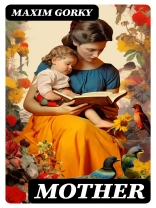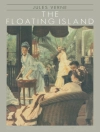In ‘Mother, ‘ Maxim Gorky crafts a poignant narrative that delves into the struggles of the working class in early 20th-century Russia. The novel centers on Pelageya Nilovna, a simple mother whose ardent support of her revolutionary son catalyzes her awakening to social consciousness. Gorky employs a realist style interwoven with lyrical language, effectively portraying the harsh realities of poverty and oppression while also illuminating the transformative power of collective action. Set against the backdrop of revolutionary fervor, the novel is situated within the literary movement that sought to inspire social change through provocative storytelling. Gorky’s own tumultuous upbringing in an impoverished family, coupled with his experiences in a politically charged Russia, informs the emotional depth and authenticity in ‘Mother.’ As a prominent figure in the Russian literary canon and a champion of the proletarian cause, Gorky’s work embodies the ideological struggle of his time, blending personal narrative with broader sociopolitical themes. His intimate understanding of the plight of the oppressed is reflected in the characters he so vividly brings to life. This seminal work is highly recommended for readers interested in social realism, revolutionary literature, and the human capacity for resilience. Gorky’s exploration of motherly love and revolutionary zeal creates a compelling narrative that resonates powerfully with contemporary audiences, underscoring the timeless nature of the struggle for justice.
عن المؤلف
Maxim Gorky, a pseudonym for Alexei Maximovich Peshkov, stands as one of Russia’s most renowned and influential authors, whose literary career began in the tumultuous era of the early 20th century. Born on March 28, 1868, in Nizhny Novgorod, Gorky rose from a poverty-stricken childhood to become a leading figure in Russian literature, known for his unique blend of realism and romanticism, often termed as ‘romantic socialism.’ His writings frequently depicted the harsh realities of Russian life during a period of great social and political unrest, providing a voice to the lower classes and the proletariat. Gorky’s involvement with the Bolsheviks, particularly his relationship with Lenin, further colored his works with revolutionary fervor and socialist ideology. One of his most celebrated novels, ‘Mother’ (1906), epitomizes his literary approach by narrating the journey of a working-class woman’s transformation into a revolutionary, thus becoming a seminal text for socialist realist literature. Gorky’s influence on literary circles extended beyond his writings, as he mentored other Russian literary giants, such as Anton Chekhov and Vladimir Lenin. His prolific output, including plays, novels, short stories, and essays, continues to be studied for their profound social commentary and contribution to Russian and world literature. Gorky’s legacy endures in the breadth of his works and his unyielding commitment to the portrayal of the human condition within the framework of political struggle and transformation.












